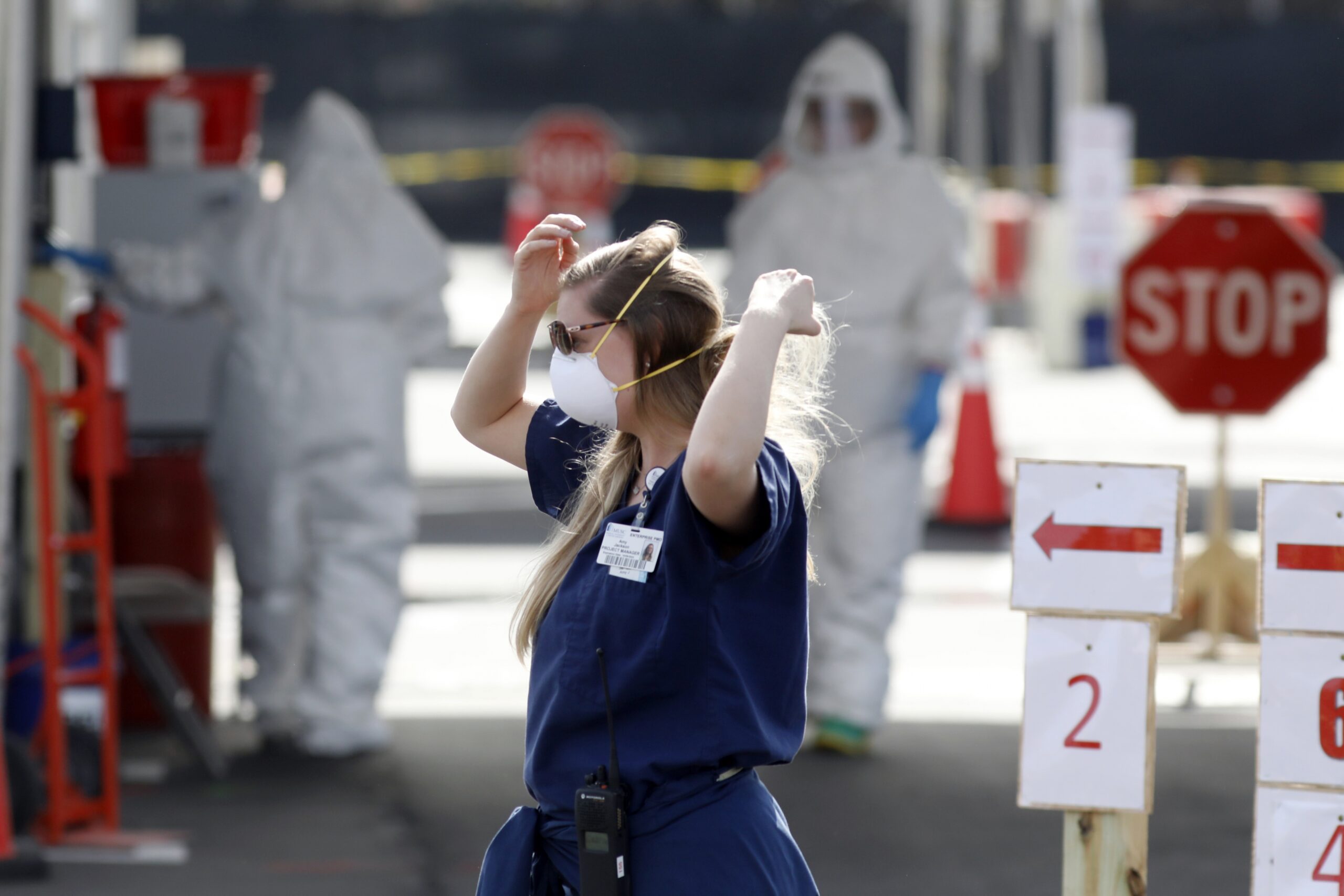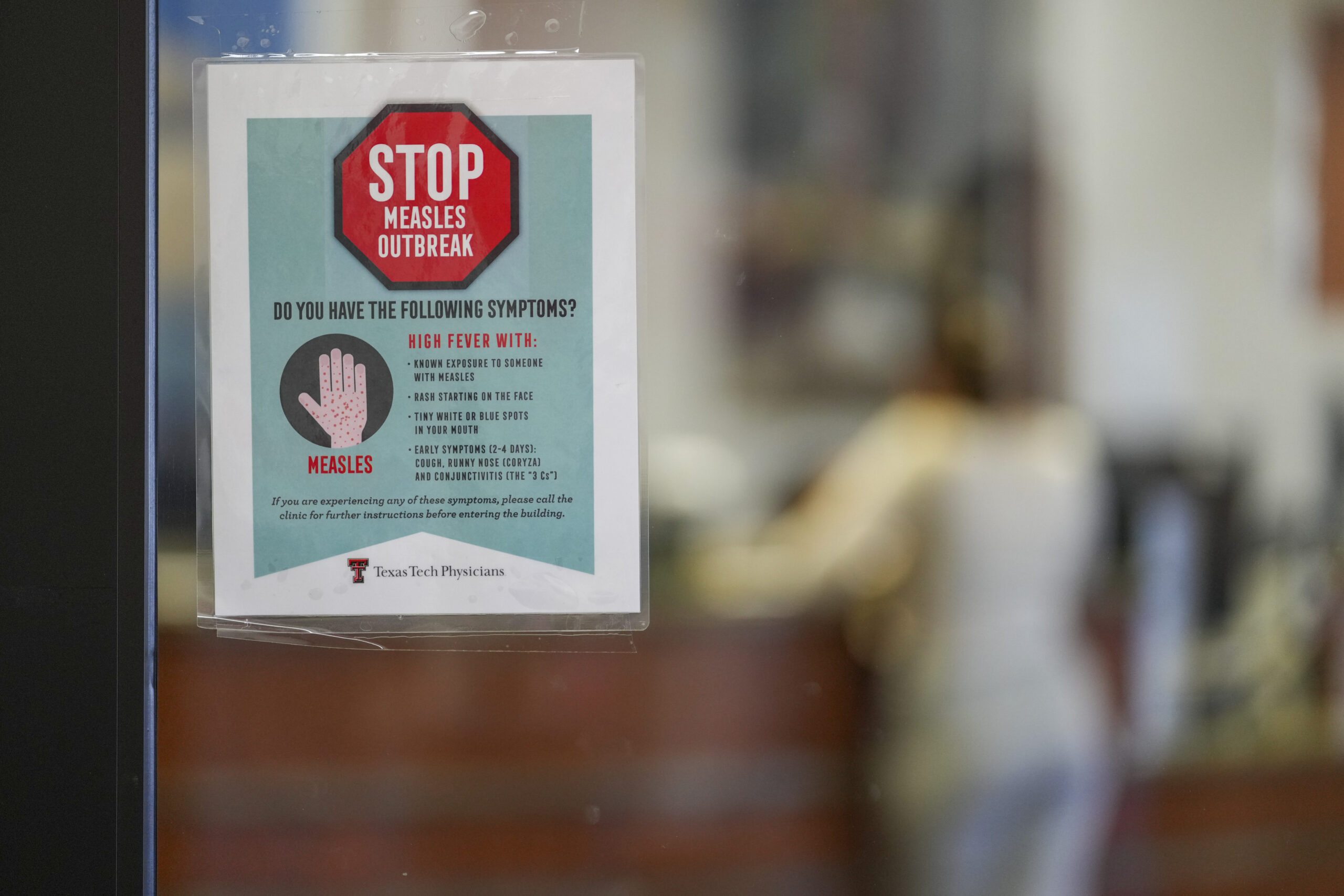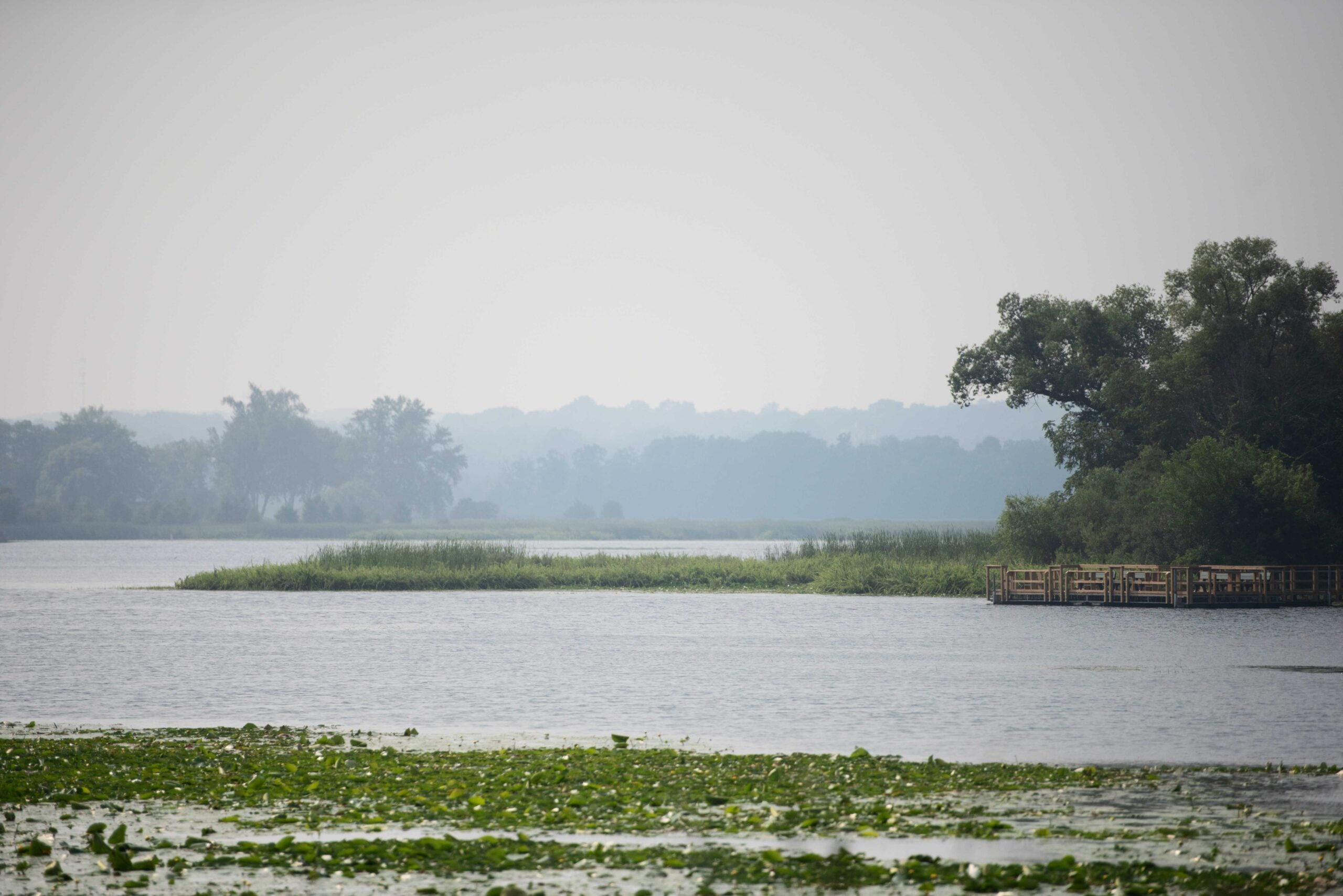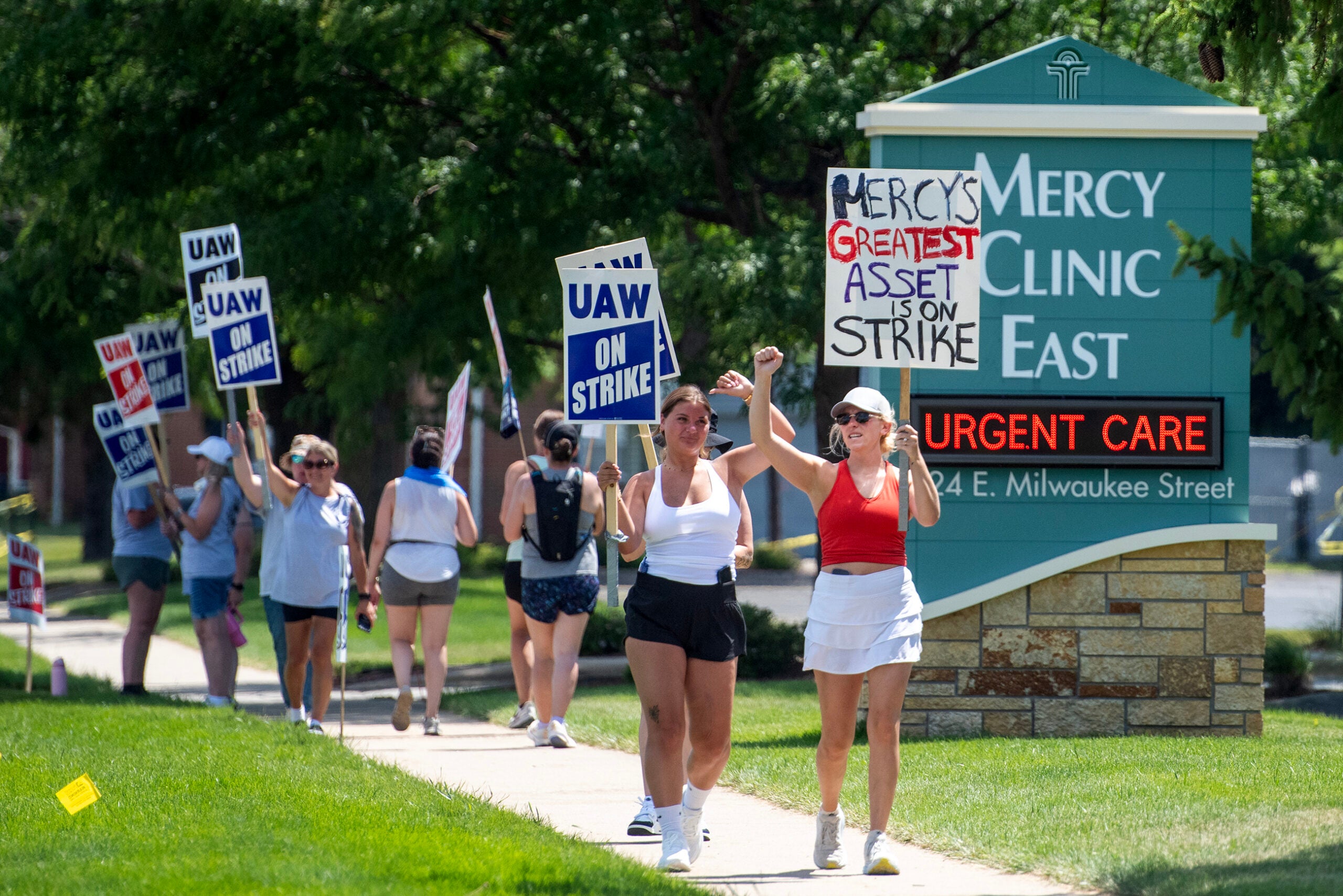As the new coronavirus continues to spread in Wisconsin and health care workers begin to test positive along with their patients, medical providers are expressing concern about supplies of protective equipment needed to stay healthy.
A doctor who works for SSM Health in Madison is in isolation after testing positive for COVID-19. The physician was asymptomatic during their last encounter with patients, according to a hospital statement.
Meanwhile, UW Health also has an employee who has tested positive for the disease but will not reveal their position or where they work.
News with a little more humanity
WPR’s “Wisconsin Today” newsletter keeps you connected to the state you love without feeling overwhelmed. No paywall. No agenda. No corporate filter.
“As COVID-19 spreads in our community, we know our physicians, providers and staff may be exposed and contract the virus, either through workplace interactions or providing care. We can confirm a positive result on our team and expect more,” said a UW Health statement.
And Jennifer Aumanstal, a nurse in the birthing suites at St. Mary’s Hospital in Madison, said during a SEIU Healthcare Wisconsin teleconference Friday that she was exposed to a different co-worker last Saturday who has since tested positive for COVID-19.
“So we’re coming in every day potentially exposing ourselves, and then we’re putting our families at risk as well,” she said.
Aumanstal said a large number of N95 masks were expired and had to be replaced. Additionally, she said there’s confusion as to what equipment is appropriate.
Nurses at Madison’s three hospitals said during the teleconference they are concerned about having to re-use masks, which the Centers for Disease Control and Prevention has recommended as a way to preserve supplies.
“Right now we have adequate supplies,” said UW Health chief safety and quality officer Jeff Pothof. “Our concern is that we’re not sure if the supply chain, which a lot of it comes from China, will be able to keep up with demand. Especially if we see a large surge in patients.”
Washington state and Italy saw a quick rise in the number of patients needing care at once and Wisconsin officials are concerned that could happen here.
On Thursday, Gov. Tony Evers put out a statement urging the public to “stay home as much as they are able.” The Wisconsin Hospital Association (WHA) echoed that plea with a statement of its own. Earlier this week, hospitals around the state announced the steps they’re taking to cope with an influx of more patients, including canceling elective surgeries.
“We want to make sure the public knows how they can help and why certain unprecedented steps are now being taken,” said WHA President and CEO Eric Borgerding.
WHA has reached out to the construction trades through the state Department of Workforce Development and Wisconsin Manufacturers and Commerce asking them to donate any unused N95 masks to their local hospitals.
“It’s outrageous there’s a shortage … this is a national problem and demands meaningful federal action,” said Louise Tetreault, vice president of SEIU Healthcare Wisconsin.
Dr. Mark Kaufman, chief medical officer for WHA, said Wisconsin’s share of the Strategic National Stockpile includes 3 million face masks, paper face masks, and thousands of the N95 respirator masks.
“Now, that sounds like a lot, but if we become a Washington state, that won’t be enough,” Kaufman said.
State officials acknowledge that demand for personal protective equipment is high around the country, but the amount Wisconsin has received so far from the federal government’s stockpile of medical equipment falls short of what is needed.
“Because this is a shortage for everybody, we do need additional manufacturing capacity, and we need to ramp up in the private sector to meet the demand here in Wisconsin and around the country,” state Department of Health Services Secretary Andrea Palm said during a teleconference Friday. She added state officials have heard from manufacturers willing to convert their operations so they can make hand sanitizer, protective equipment and a variety of other items needed for the pandemic.
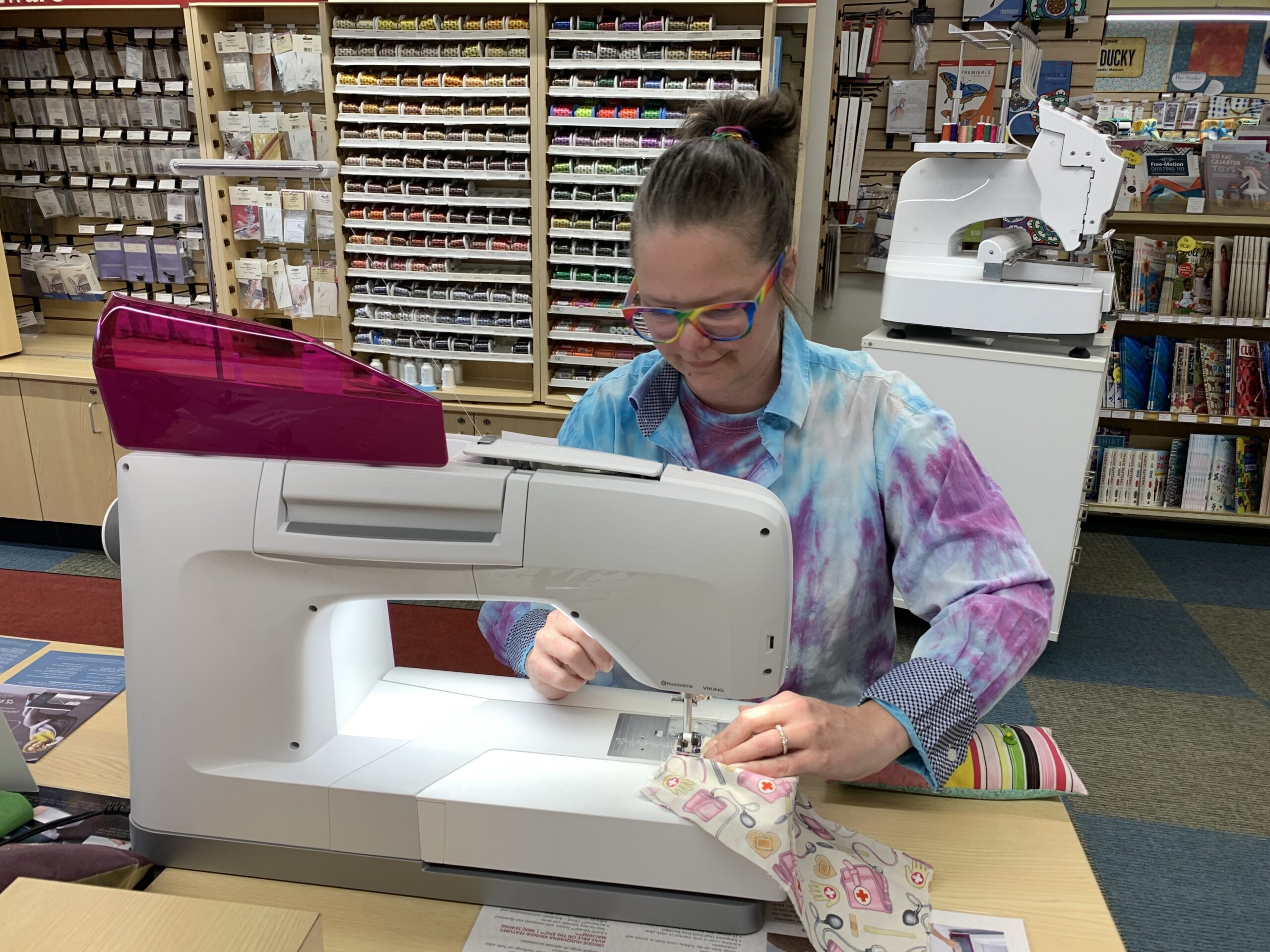
To get more face masks, UW Health sent an email to all its volunteers asking if they had time and a sewing machine to help make protective gear once the appropriate materials and pattern are decided upon.
Jen Mulder shared the plea for sewers on the Facebook page of her business, the Electric Needle.
She is also enlisting fellow sewers to make face masks for nurses at UnityPoint Health-Meriter Hospital in Madison, where a friend works. Friday she was searching for suitable patterns online.
“It’s made from cotton, which most of us have at home,” said Mulder. “The idea is because a cotton mask over the N95 mask is washable it extends the life of the N95 mask,” she said. It could also be used alone if the more protective masks aren’t available, which the CDC has condoned during the pandemic to address shortages of personal protective equipment.
However, UW Health officials said that they were asking members of the public to hold off on making or dropping off unsolicited items, including hand-sewn cloth masks, according to a news release issued on Friday evening.
They asked people not to drop off the handmade masks or other protective equipment.
“Please wait to hear from us before sewing any masks. We have very specific guidelines that you will need to follow for us to accept the masks,” officials said in the news release.
Editor’s note: This was story was updated with new information from a UW Health news release.
Wisconsin Public Radio, © Copyright 2025, Board of Regents of the University of Wisconsin System and Wisconsin Educational Communications Board.

